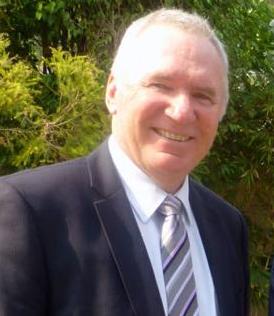Australian Cricket Legend Allan Border Opens Up About His Battle with Parkinson’s Disease
Allan Border, the former Australian cricket captain, has revealed that he has been battling Parkinson’s disease for the past seven years. Parkinson’s is a progressive disorder of the nervous system that affects movement and causes unintended or uncontrollable movements. Border was diagnosed with the disease in 2016 but chose to keep it private until now. Parkinson’s is an neurodegenrative / Ageing disease that causes progressive brain damage, with common symptoms of loss of muscle control, tremors, muscle rigidity, and slowness of movement. Border said that he will continue to fight the disease and that he is not scared about the immediate future. Border played 156 Tests between 1979 and 1994 – 93 of them as captain – and was the first batter to score 11,000 runs, finishing with 11,174. He also led Australia to victory in the 1987 World Cup and ended up playing 273 ODIs. Since retiring, he has served as an Australian selector and been a broadcast commentator.
Here are the top 5 questions on Parkinson’s Disease being queried on Google search and their answers:
- What is Parkinson’s disease (PD)?
– Parkinson’s disease is a progressive neurological disorder or disorder of the brain. It affects men slightly more than women and Caucasians more than people of color. The cause of PD is still not clearly understood, with theories including genetic, environmental, and viral factors.
- What are the symptoms of Parkinson’s disease?
– The most common symptoms of Parkinson’s disease include tremor at rest, rigidity (stiffness), bradykinesia (slowness of movement), and postural instability (lack of balance). Individuals with PD may also experience difficulty walking, reduced facial expressions, small handwriting, soft and muffled speech, constipation, sleep disturbances, depression, anxiety, memory problems, difficulty swallowing, and reduced armswing.
- How does Parkinson’s disease begin?
– The characteristic brain pathology and motor symptoms of Parkinson’s disease are well established, but the details of the disease’s cause and course are much murkier. Many scientists are searching for blood- or urine-based biomarkers, or imaging agents, that could objectively identify the risk of Parkinson’s, but so far no leading contender has emerged.
- What other specialists or healthcare professionals should help me manage my care?
– It is important to ask about the other health professionals who can help manage Parkinson’s disease. This may include physical therapists, occupational therapists, speech therapists, and social workers, among others[.
- Besides taking medications, what else can I do to manage my Parkinson’s disease? Are there specific therapies, exercises, or lifestyle changes that can help?
– In addition to medications, there are specific therapies, exercises, and lifestyle changes that can help manage Parkinson’s disease. These may include physical therapy, speech therapy, occupational therapy, and regular exercise, among other strategies.
These questions cover a range of important topics related to Parkinson’s disease, from understanding the condition and its symptoms to managing care and seeking additional support from healthcare professionals.
Citations:
[1] https://www.foxsports.com.au/cricket/australian-cricket-legend-allan-border-has-parkinsons-disease/news-story/c96d056bd549403184ec81a1ac66d72f
[2] https://youtube.com/watch?v=o51v2az8mgo
[3] https://www.smh.com.au/sport/cricket/allan-border-reveals-he-has-parkinsons-disease-20230630-p5dky9.html
[4] https://apnews.com/article/allan-border-cricket-ad78339b79c704dfb315b10100aba538
[5] https://www.espncricinfo.com/story/allan-border-reveals-he-has-parkinsons-disease-1385094
[6] https://www.movementdisordersclinic.com/
[7] https://www.apdaparkinson.org/article/common-questions-from-caregivers/
[8] https://www.nature.com/articles/538S17a
[9] https://www.parkinson.org/library/fact-sheets/questions-doctor-visit

